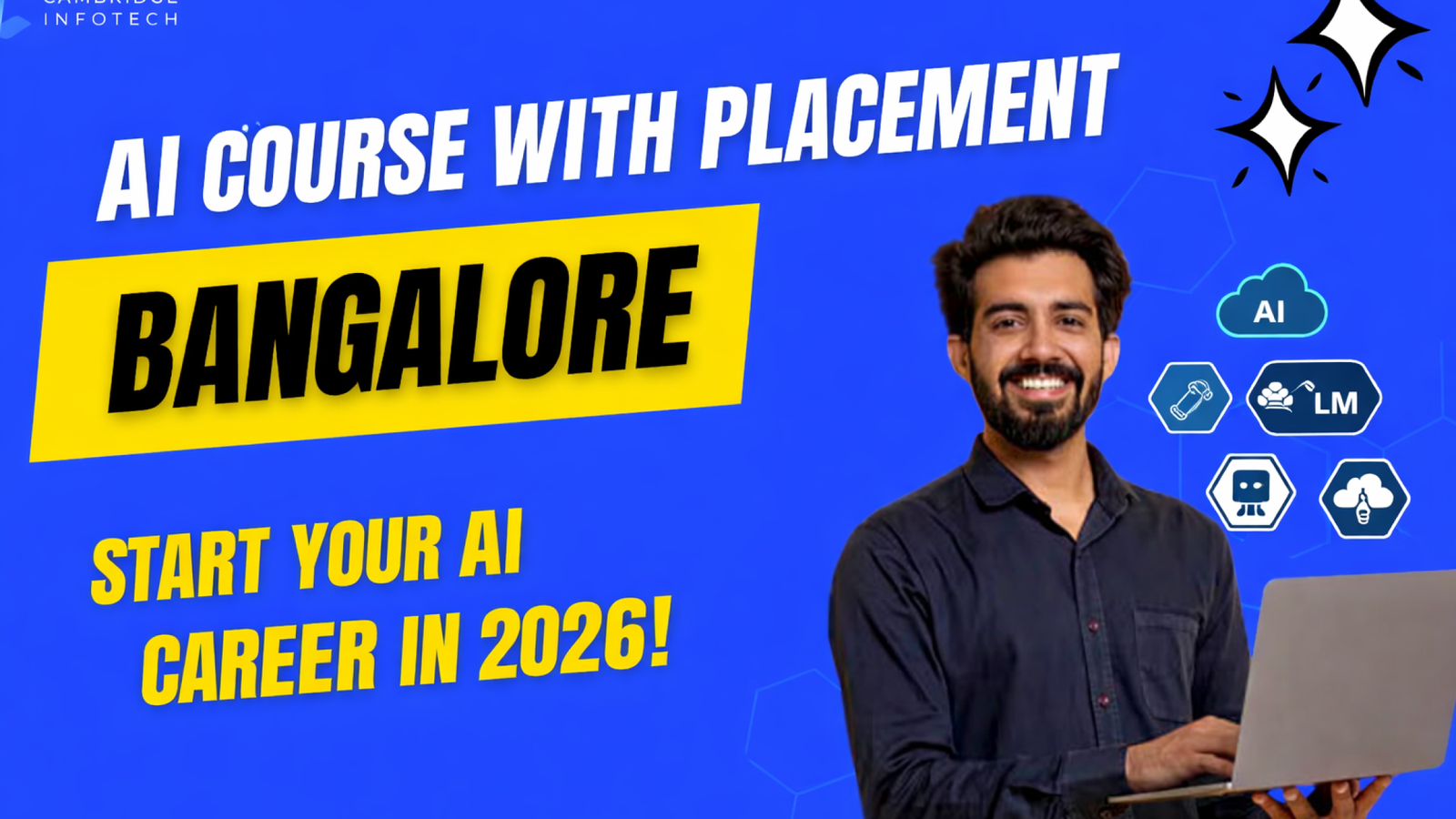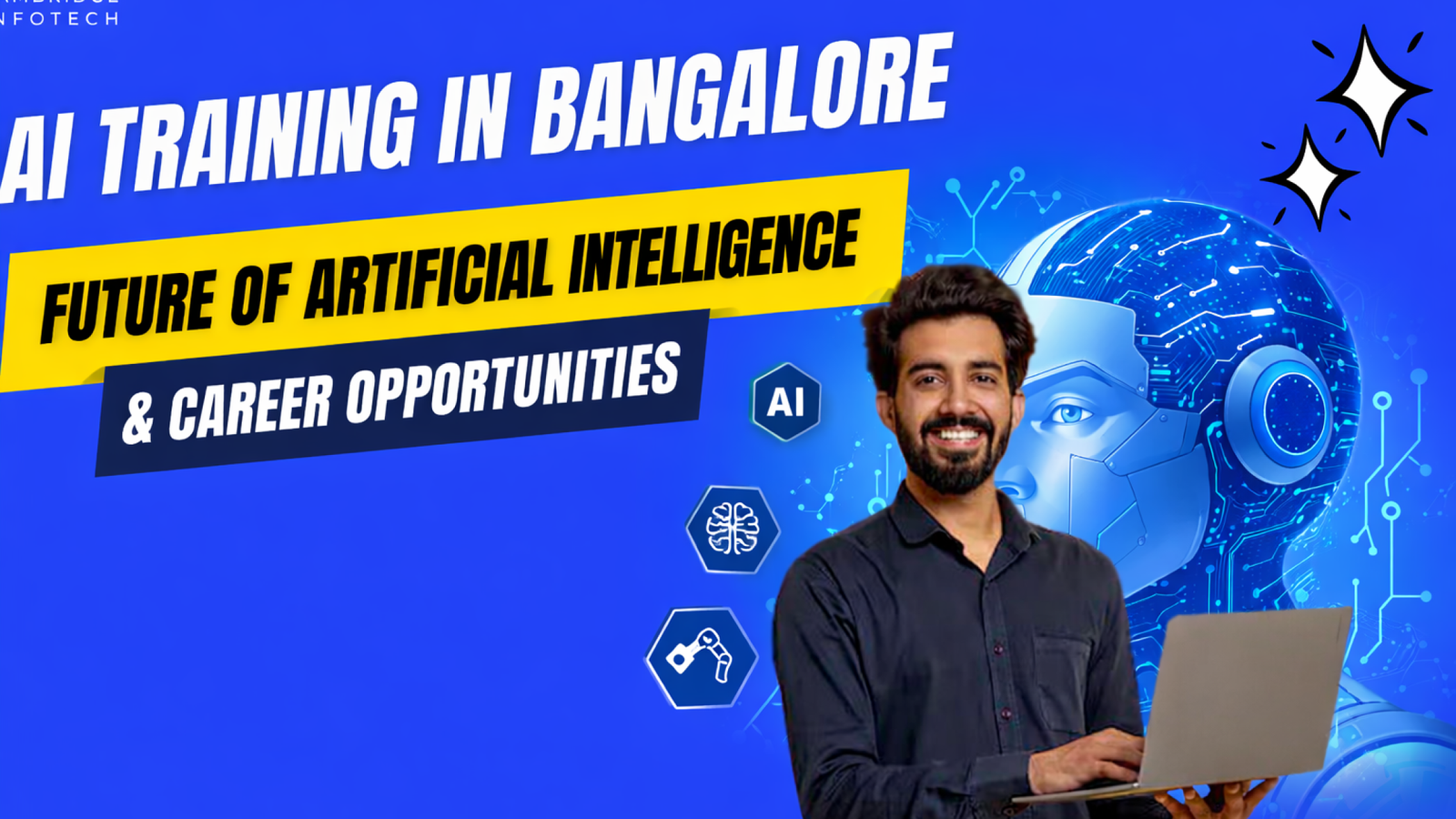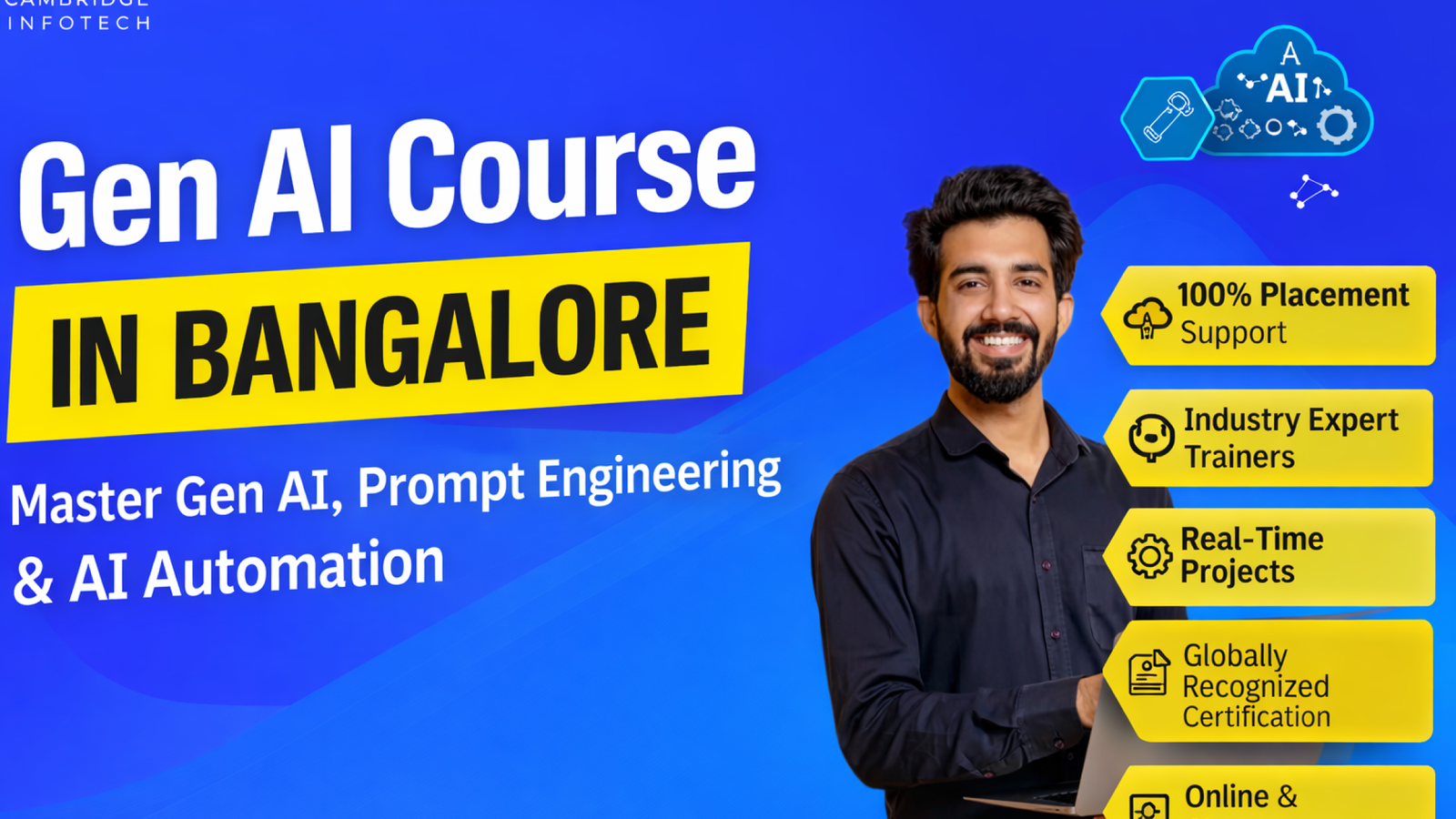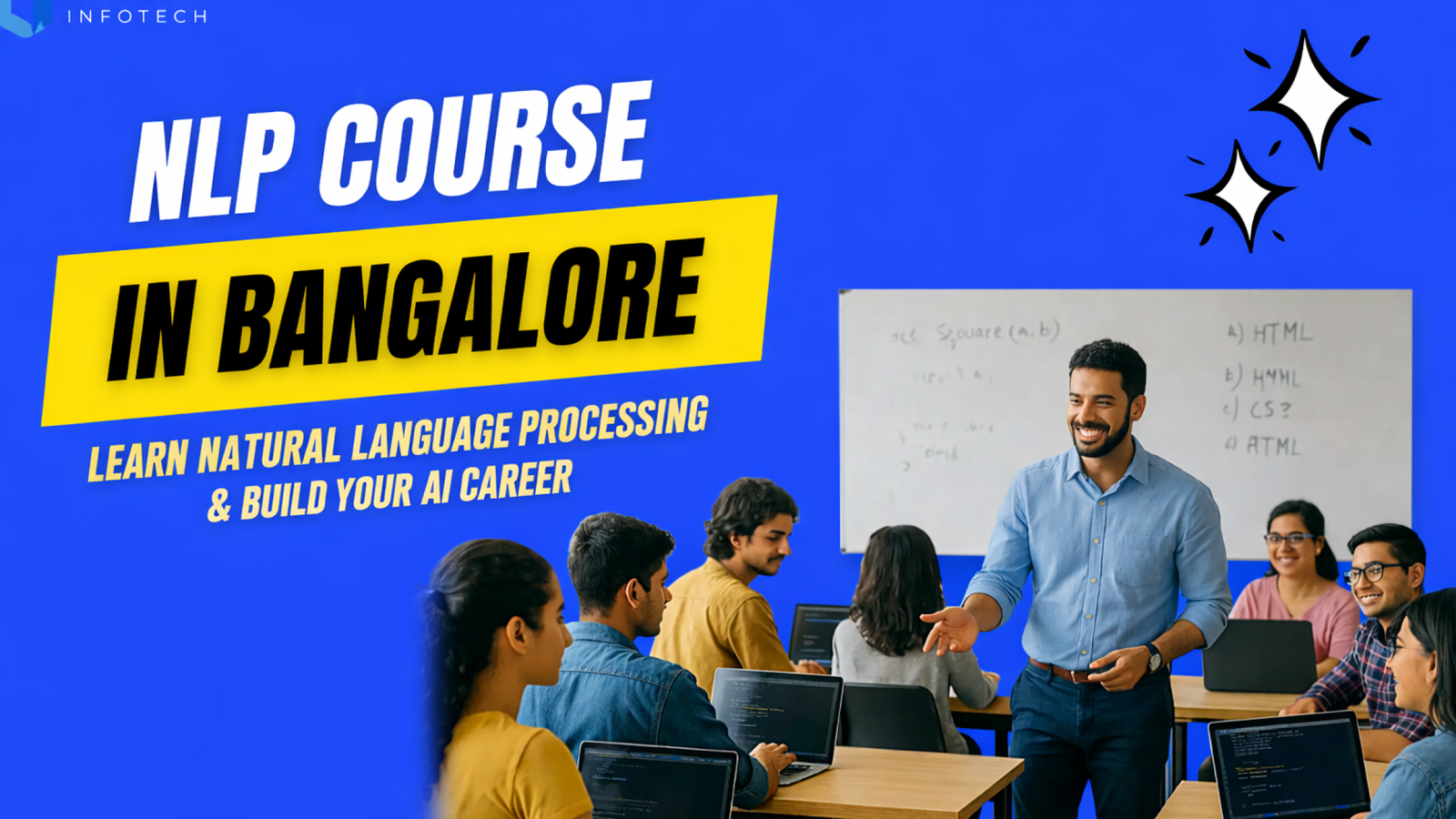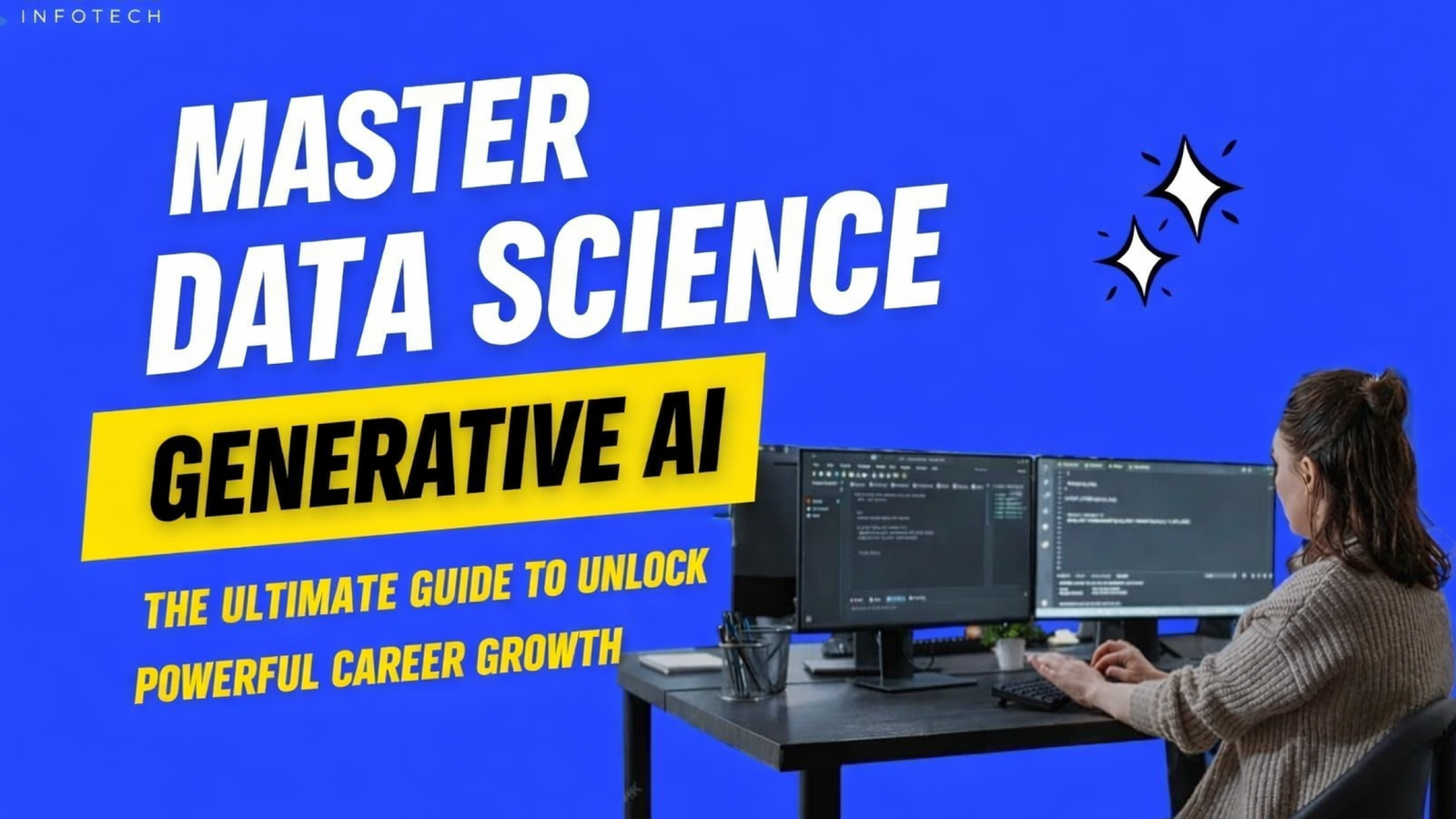Will AI Replace My Job? The Top 10 Software Jobs It Will Change (And How to Adapt in 2026 and Beyond)
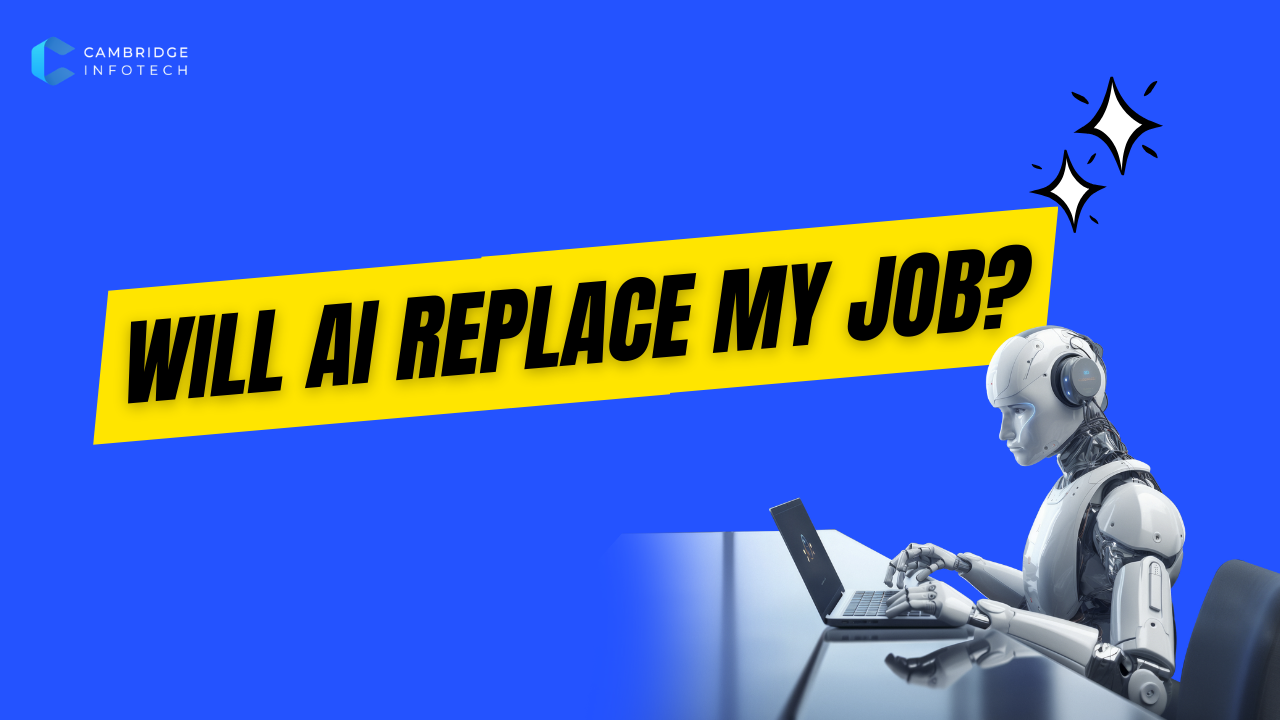
1. Introduction: The Fear and Reality of AI Replacing Jobs
“Will robots take my job?” — it’s a question echoing across industries today. With the rise of advanced automation, machine learning, and generative AI, professionals are beginning to wonder if artificial intelligence will replace their roles entirely.
The truth is more nuanced. While AI is transforming workplaces globally, it’s not just about replacement — it’s about reinvention. Technologies like ChatGPT, GitHub Copilot, and AI-powered automation tools are redefining how software engineers, developers, testers, and data analysts work.
According to global reports, over 40% of current job skills are expected to change within the next three years due to AI and automation. The key question isn’t “Will AI take my job?” but rather “How can I evolve with AI?”
AI is not the end of human work; it’s the beginning of human-AI collaboration. In this blog, we’ll explore:
The software jobs most affected by AI.
Roles that will remain AI-safe.
Practical ways to adapt, upskill, and future-proof your career in 2026 and beyond.
2. Will AI Replace My Job? Understanding the Real Impact
When people ask, “Will AI replace my job?” or “Will AI steal your job?”, they’re often visualizing a future where machines fully replace human employees. However, the reality is that AI replaces tasks — not entire jobs.
AI is incredibly efficient at handling repetitive, data-heavy, and rule-based tasks. But human jobs involve context, creativity, and judgment, which AI still lacks.
For example:
AI replacing jobs in data entry or testing is real because automation tools can do those faster.
But AI replacing humans in strategy, design, and innovation remains highly unlikely.
In software development, AI already assists in writing code, generating documentation, and identifying bugs. Yet, every AI-generated solution still requires a human to validate, optimize, and make critical decisions.
So, while you might see AI tools like Copilot or ChatGPT writing chunks of code, it’s not about AI taking over your job, but AI amplifying your productivity.
To sum up — AI is not here to replace humans, but to empower developers and engineers to focus on higher-value work.
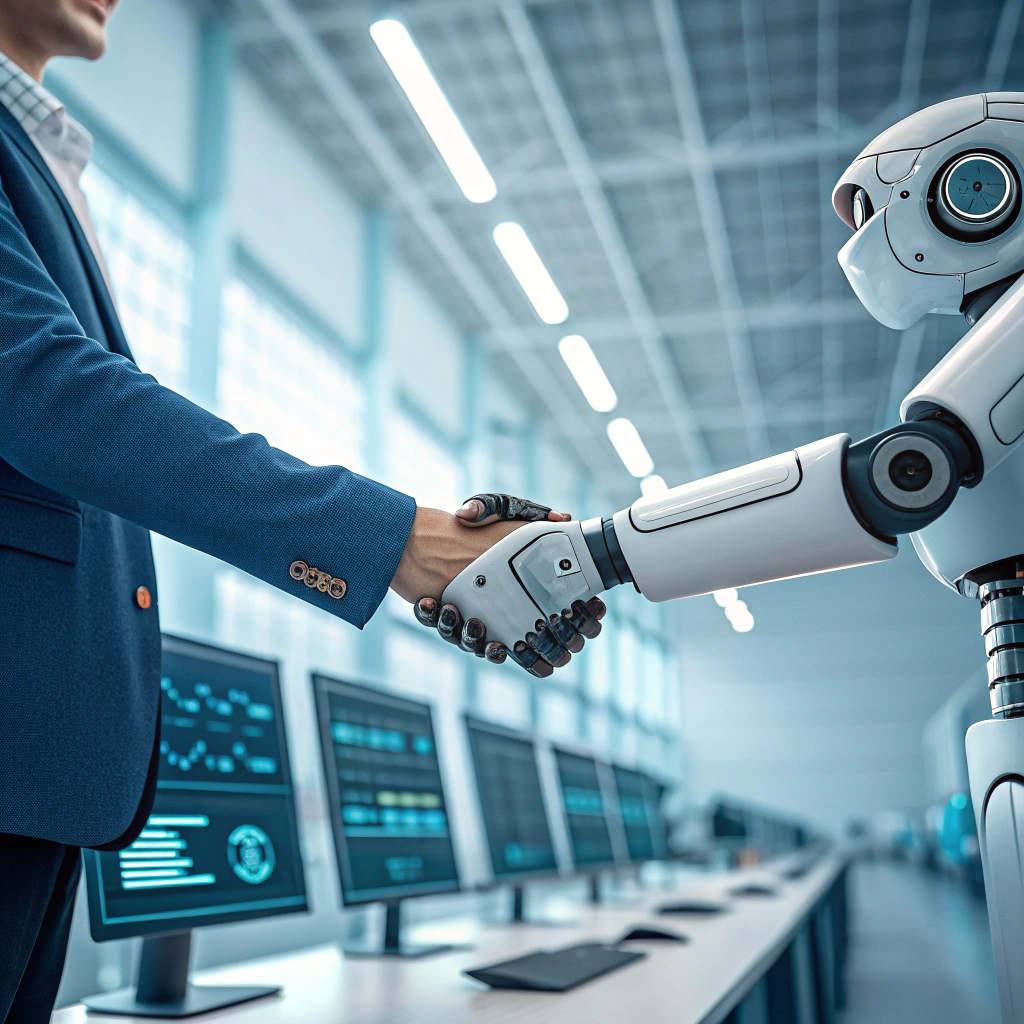
3. The Top 10 Software Jobs That AI Will Change (and How to Adapt)
Artificial intelligence has already become a core part of the software development lifecycle — from code generation to automated testing and deployment. While it’s easy to assume that “AI will replace programmers” or “AI will take over software engineering jobs,” the reality is that AI is transforming how these professionals work, not erasing their roles.
Below are the 10 major software jobs being reshaped by AI — and how you can adapt to stay relevant in the coming decade.
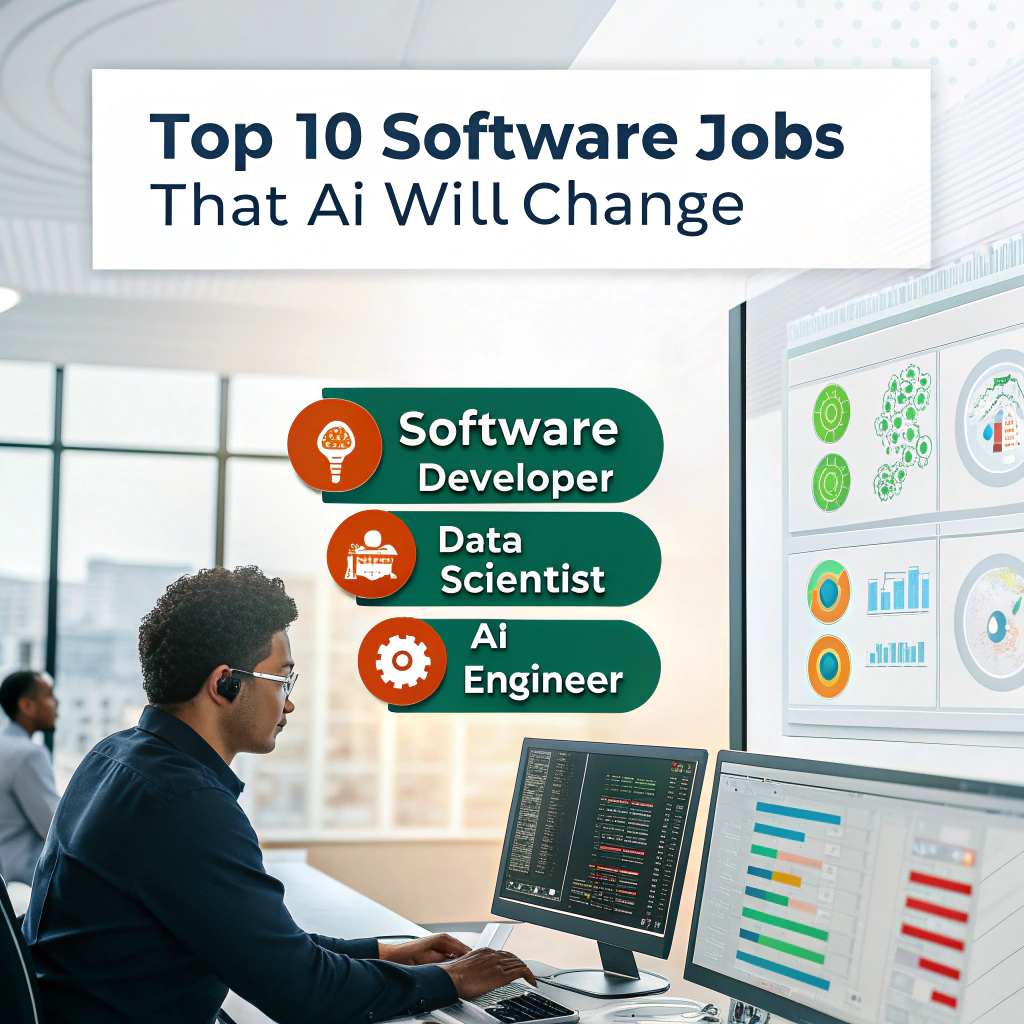
1. Software Developers & Programmers
One of the most debated questions today is, “Will AI replace programmers?”
AI tools like GitHub Copilot, ChatGPT, and Replit Ghostwriter can already write, debug, and optimize code in seconds. While this might seem like a threat, these tools still rely on human supervision, creativity, and problem-solving.
Instead of replacing developers, AI is acting as a co-pilot — helping them code faster and more efficiently.
How to Adapt:
Learn AI-powered development tools (Copilot, Tabnine, ChatGPT API).
Focus on system design, scalability, and architecture — skills AI can’t automate.
Upskill through AI in software development or AI-based software development courses.
2. Software Testers & QA Engineers
AI is revolutionizing testing and quality assurance. Automated testing platforms powered by machine learning can detect bugs, predict vulnerabilities, and even simulate user behavior.
However, AI lacks domain understanding and critical validation, which remain human-driven tasks.
How to Adapt:
Learn AI-driven testing tools (Testim, Applitools).
Focus on AI automation testing frameworks.
Strengthen skills in quality strategy and manual exploratory testing.
3. Data Analysts & Data Scientists
Many professionals wonder, “Will AI replace data scientists?”
AI can now analyze data patterns, generate visualizations, and predict trends automatically. But the real value of a data scientist lies in understanding business context and translating data into decisions — something AI cannot do alone.
How to Adapt:
Shift from pure analytics to data strategy and storytelling.
Learn to work with AI and automation tools for data science.
Focus on ethical AI and model governance to stay future-ready.
4. Application Developers
With the rise of AI in application development, tasks like UI generation, backend logic creation, and user experience optimization are being partially automated.
Tools now exist that can build basic apps using natural language prompts. Still, businesses need developers who can understand user needs, integrate APIs, and ensure security.
How to Adapt:
Learn prompt engineering and AI integration.
Keep up with AI-based software development trends.
5. DevOps Engineers
AI in DevOps is leading to predictive analytics, automated CI/CD pipelines, and self-healing systems.
While automation simplifies tasks, DevOps engineers who can design, manage, and interpret AI-driven pipelines are in high demand.
How to Adapt:
Learn AI for DevOps (AIOps) and cloud automation.
Develop skills in monitoring, orchestration, and model deployment.
Integrate AI automation tools into your DevOps workflow.
6. Cybersecurity Engineers
AI enhances threat detection and vulnerability scanning — but also introduces AI-generated cyber threats. This duality makes cybersecurity one of the most AI-affected yet AI-safe careers.
How to Adapt:
Learn AI-based security analysis and automated incident response.
Focus on AI threat detection models and ethical hacking with AI.
Build expertise in AI risk management — an emerging, high-paying field.
7. Technical Writers & Documentation Specialists
AI can generate software documentation automatically, but human writers are still essential to ensure accuracy, clarity, and tone.
How to Adapt:
Use AI for first drafts but refine them with human insight.
Learn AI documentation tools (like GrammarlyGO or Notion AI).
Focus on domain-specific documentation — especially for complex systems.
8. UI/UX Designers
AI design tools can now suggest layouts, color palettes, and even user flows. However, AI lacks empathy — it cannot understand why users behave a certain way.
How to Adapt:
Use AI-driven design tools like Figma AI and Uizard to boost productivity.
Focus on user psychology, empathy mapping, and creative strategy.
Develop skills in AI-assisted UX research.
9. Product Managers & Business Analysts
AI analytics tools can handle data interpretation and trend prediction, but human decision-making remains crucial.
How to Adapt:
Learn AI-driven analytics and forecasting tools.
Focus on human-centered product thinking.
Upskill in AI project management and agile workflows.
10. Cloud & Automation Engineers
With AI and automation jobs merging, cloud professionals who can deploy and scale AI models are in huge demand.
How to Adapt:
Develop AI workflow automation expertise.
Focus on integrating AI automation pipelines in enterprise environments.
AI isn’t just changing job descriptions — it’s creating a new generation of hybrid roles that blend software development, data science, and automation. The best professionals in 2026 won’t compete against AI — they’ll leverage it to become more efficient, creative, and valuable.
4. Jobs Safe from AI: Careers AI Can’t Replace
While AI and automation continue to reshape the software industry, not every role is under threat. Certain careers rely on creativity, empathy, leadership, and ethical judgment — areas where AI still struggles. These are often referred to as AI-safe jobs or AI-proof careers.
Below are some of the jobs that AI can’t replace, even in the next decade:
1. Project Managers
AI can analyze data and automate scheduling, but it cannot replace human leadership, team motivation, or emotional intelligence. Managing human relationships and making strategic decisions require human insight — making this role one of the most AI-proof jobs of the future.
2. UX/UI Designers
Although AI design tools can assist in layout creation, the art of user empathy, storytelling, and emotional design remains uniquely human. Great designers understand users beyond metrics — something AI still cannot replicate.
3. AI Ethics and Compliance Specialists
As AI adoption accelerates, companies increasingly need professionals to ensure ethical use of AI, data privacy, and bias prevention. This emerging field is among the most future-proof AI careers.
4. Educators and Trainers
AI can teach concepts but lacks the ability to inspire, mentor, and emotionally engage learners. As AI expands, the need for human educators who teach AI itself is growing.
5. Strategic Leaders and Innovators
AI can process data but cannot develop vision, creativity, or long-term business strategy. Roles like CTOs, Innovation Heads, and Product Strategists will remain essential in guiding AI adoption responsibly.
6. Creative Developers and Problem Solvers
Developers who think beyond code — who design scalable architectures, develop innovative applications, and understand human problems — will always stay relevant.
Key Insight:
AI may replace repetitive tasks but not human intuition, emotional reasoning, and creativity. Building a career that integrates technical and human skills is the best way to stay AI-proof.
5. Why AI Won’t Replace Humans Completely
The growing question — “Will AI replace humans?” — often comes from a misunderstanding of what AI can truly do. While artificial intelligence can perform calculations, analyze data, and even generate content, it lacks human consciousness.
Here’s why AI replacing humans entirely is not realistic:
1. AI Lacks Emotional Intelligence
AI cannot feel empathy, compassion, or motivation. In workplaces, human relationships, teamwork, and leadership depend on emotional understanding, not algorithms.
2. AI Has No True Creativity
Generative AI can mimic creativity but doesn’t originate ideas. True innovation — from designing a new app to solving a unique business challenge — stems from human imagination and experience.
3. AI Relies on Human Guidance
Even the most advanced AI models need human input for training, supervision, and evaluation. They can’t define business goals, interpret cultural nuances, or make moral decisions.
4. Humans Drive Ethical Decision-Making
AI can generate solutions but can’t distinguish right from wrong. Ethical responsibility, social values, and legal compliance remain under human control — especially in industries like healthcare, finance, and defense.
5. AI Cannot Replace Contextual Understanding
Humans can interpret tone, cultural subtleties, and context that AI often misunderstands. This makes humans indispensable in communication-driven and creative professions.
AI is not a human replacement — it’s a force multiplier. It’s designed to handle repetitive and analytical work so humans can focus on strategic thinking, creativity, and innovation.
In short: AI won’t take your job — but someone who knows how to use AI effectively might.
6. The Future of Software Engineering Jobs with AI
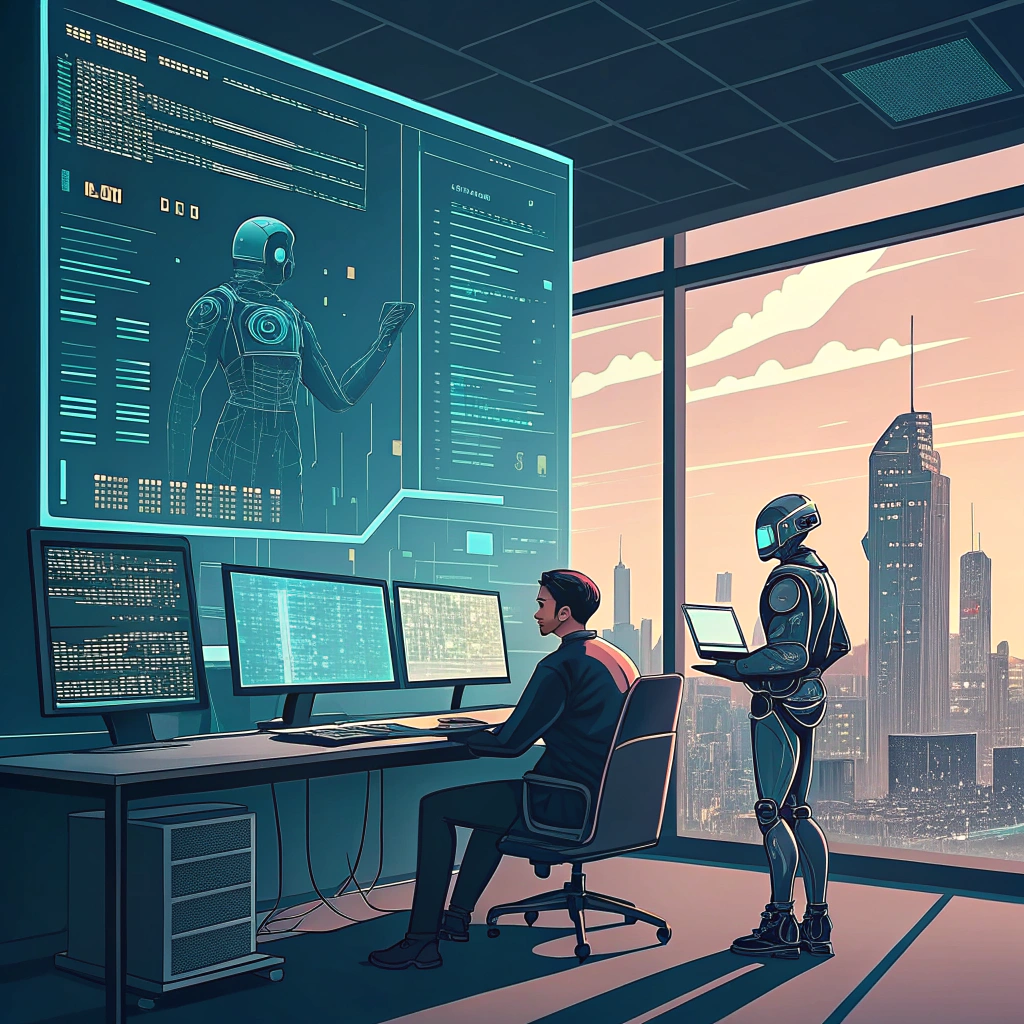
The future of software development is no longer just about coding — it’s about collaborating with AI. Artificial intelligence is now embedded in every stage of the software development lifecycle (SDLC) — from planning and coding to testing, deployment, and maintenance.
Many professionals wonder, “Will AI replace developers?” or “Will programmers be replaced by AI in 5 years?” The short answer: no — but their roles will evolve dramatically.
AI in Software Development: A Co-Developer Revolution
AI is transforming how software is built through:
Code Generation: Tools like ChatGPT, Copilot, and Tabnine generate boilerplate code and suggest optimizations.
Error Detection: AI-based systems can detect bugs before they reach production.
AI-Powered Software Development: Predicts system bottlenecks, automates builds, and recommends efficient architectures.
Testing & Maintenance: AI automates repetitive QA tasks, reducing time and errors.
AI in Application Development
Developers can now describe what they want in plain English, and AI will generate the code or interface. This low-code/no-code movement allows faster prototyping and innovation.
Example: A business analyst can use AI tools to build an internal application without writing a single line of code — saving weeks of development time.
The Evolving Role of Software Engineers
Future developers won’t just write code — they’ll train, manage, and integrate AI models into systems. They will act as AI architects — bridging human logic with machine intelligence.
Key Skills for 2026 and Beyond:
AI Programming Languages: Learn top AI languages like Python, R, Julia, and Java.
Prompt Engineering: Understand how to communicate with AI tools effectively.
MLOps & Cloud Integration: Learn how AI models are deployed, monitored, and optimized.
Generative AI for Code: Learn how to guide, evaluate, and correct AI-generated code.
The future of software engineering jobs with AI isn’t about replacement — it’s about redefinition. Developers who learn to use AI in their workflow will become more efficient, innovative, and in demand.
AI will not replace software engineers — but AI-empowered engineers will replace those who resist change.
7. How to Adapt: Future-Proof Your Career Against AI
If you’ve ever asked, “How do I adapt to AI in the workplace?”, the answer lies in strategic upskilling and embracing AI as a partner — not a rival.
As automation expands, new opportunities are emerging for professionals who understand both AI technology and business value. Here’s how to future-proof your career in the age of AI:
Step 1: Learn AI Tools for Developers
AI is now part of every developer’s toolkit. Mastering these tools will make you faster, smarter, and more efficient.
Top AI Tools for Software Developers (2026):
GitHub Copilot / ChatGPT: Code generation and documentation.
Kite / Tabnine: Intelligent code completion.
Ponicode / Diffblue: AI-based unit testing.
Uizard / Figma AI: AI for UI/UX design.
These tools are already defining AI-powered software development workflows across industries.
Step 2: Enroll in AI Upskilling Courses
Upskilling is no longer optional — it’s the key to survival in the evolving tech landscape.
Search for the best AI upskilling courses, generative AI courses, or AI certifications for developers to stay current.
Recommended AI Upskilling Paths:
AI Programming Fundamentals: Learn Python, TensorFlow, and PyTorch.
Generative AI Mastery: Explore tools like ChatGPT, Midjourney, Gemini, and Copilot.
AI in Software Development: Understand how to integrate AI APIs and automation.
AI Project Implementation: Work on end-to-end AI applications — from design to deployment.
By choosing the right AI upskilling course, you not only secure your career but open doors to high-paying AI jobs and leadership roles in tech innovation.
Step 3: Master Human Skills AI Can’t Replicate
While AI automates tasks, human skills like creativity, empathy, leadership, and storytelling remain irreplaceable. Strengthen your ability to:
Solve problems strategically.
Lead diverse teams.
Make ethical decisions.
Communicate complex ideas clearly.
The most AI-proof jobs of the future will belong to those who can combine technical skills with human intelligence.
Step 4: Explore AI Programming Languages
Learning top AI programming languages will future-proof your technical foundation.
Here are the most in-demand ones for 2026:
Python: The backbone of AI and ML.
R: Perfect for statistical analysis and data visualization.
Java & Julia: Ideal for scalable AI-driven applications.
C++: Used in high-performance AI and robotics systems.
By learning these, you strengthen your ability to work in AI-powered application development and AI-driven automation systems.
Step 5: Build an AI-Integrated Portfolio
Don’t just list skills — showcase projects where you’ve used AI.
Examples:
Built a chatbot using OpenAI API.
Integrated AI-based recommendations into a web app.
Used ML models to predict user behavior.
This proves your ability to not just understand AI but apply it in real-world solutions, which employers value most.
Step 6: Stay Updated with AI Trends
AI evolves every few months — staying informed is crucial. Follow credible sources, take part in AI communities, and constantly experiment with new tools.
Some reliable platforms for continuous learning:
Coursera, Udemy, edX for certified courses.
Google AI, OpenAI, NVIDIA Developer Blog for updates.
Kaggle, GitHub, Stack Overflow for practical projects.
Step 7: Focus on AI-Proof Career Growth
The most AI-proof careers are not those that avoid AI — but those that leverage AI strategically.
Examples of AI-proof jobs of the future:
AI Systems Integrator
AI Ethics Officer
Human-AI Collaboration Manager
Creative Technologist
AI Product Strategist
These roles will define the next era of innovation — blending technology, creativity, and human judgment.
Adaptation Mindset –
The future belongs to professionals who embrace AI rather than fear it. By continuously upskilling, experimenting with AI tools, and strengthening your human capabilities, you ensure that no matter how advanced AI becomes — your career stays ahead of it.
8. The Future of Work: Humans + AI Collaboration
As artificial intelligence continues to transform every layer of the software industry, one truth is becoming increasingly clear — AI won’t replace humans; it will redefine how humans work. The future of software development isn’t about humans versus AI, but rather humans with AI.
AI as a Partner, Not a Replacement
While many professionals still worry about whether AI will take their jobs, the real shift is in how jobs are performed. In software development, AI in application development and AI-powered software development tools are enhancing creativity, automating repetitive tasks, and accelerating innovation.
For example:
AI copilots like GitHub Copilot and Amazon CodeWhisperer are transforming the way developers write and debug code.
AI testing assistants now detect bugs before they go live, drastically reducing human error.
AI in software architecture helps teams predict scalability issues and improve efficiency before deployment.
Instead of eliminating developers, these advancements are upgrading their capabilities, making them faster, smarter, and more efficient.
A New Division of Labor
The workplace of the future will feature clear collaboration between humans and AI systems:
Humans will focus on creativity, ethical decision-making, system design, and emotional intelligence.
AI will handle data-driven analysis, automation, and optimization tasks that require high computational power.
This synergy creates AI-proof jobs — roles that thrive on human judgment and creative reasoning. These AI-safe careers include software architects, product managers, cybersecurity analysts, and AI ethics specialists.
The Rise of “Hybrid Professionals”
In 2026 and beyond, companies will increasingly seek hybrid professionals — software engineers and developers who understand both AI systems and human-centered design. The demand will grow for professionals skilled in:
AI-based software development
Machine learning model integration
Ethical and explainable AI design
Cross-functional communication with AI systems
Upskilling through AI upskilling courses or Generative AI certification programs will be critical to future-proof your career. Developers who learn AI tools for software developers, top AI programming languages, and generative AI techniques will stay relevant in the age of automation.
AI Collaboration Will Create More Jobs Than It Replaces
While AI will automate certain programming or testing tasks, it will also create entirely new categories of jobs — from AI system trainers to human-AI workflow designers.
Research from leading technology institutes predicts that AI and automation will generate millions of new roles in areas like:
AI-powered software testing
Prompt engineering and fine-tuning
AI system integration
Data governance and model auditing
The future of software engineering jobs with AI will be built on this principle of augmentation — where AI enhances human capabilities rather than replaces them.
The most successful professionals in the coming decade will be those who embrace AI as a collaborator. By combining your domain expertise with AI literacy, you’ll become not just irreplaceable, but indispensable.
AI isn’t coming for your job — it’s coming to change the way you work. Those who adapt, upskill, and collaborate with AI will lead the next generation of software innovation.
9. How to Build a Career in AI (Even Without a Degree)
Artificial Intelligence is no longer a futuristic concept—it’s the fastest-growing career field of the decade. The good news? You don’t need a traditional computer science degree to start a successful career in AI. With the right AI skills, tools, and certifications, anyone can transition into this high-paying, future-proof industry.
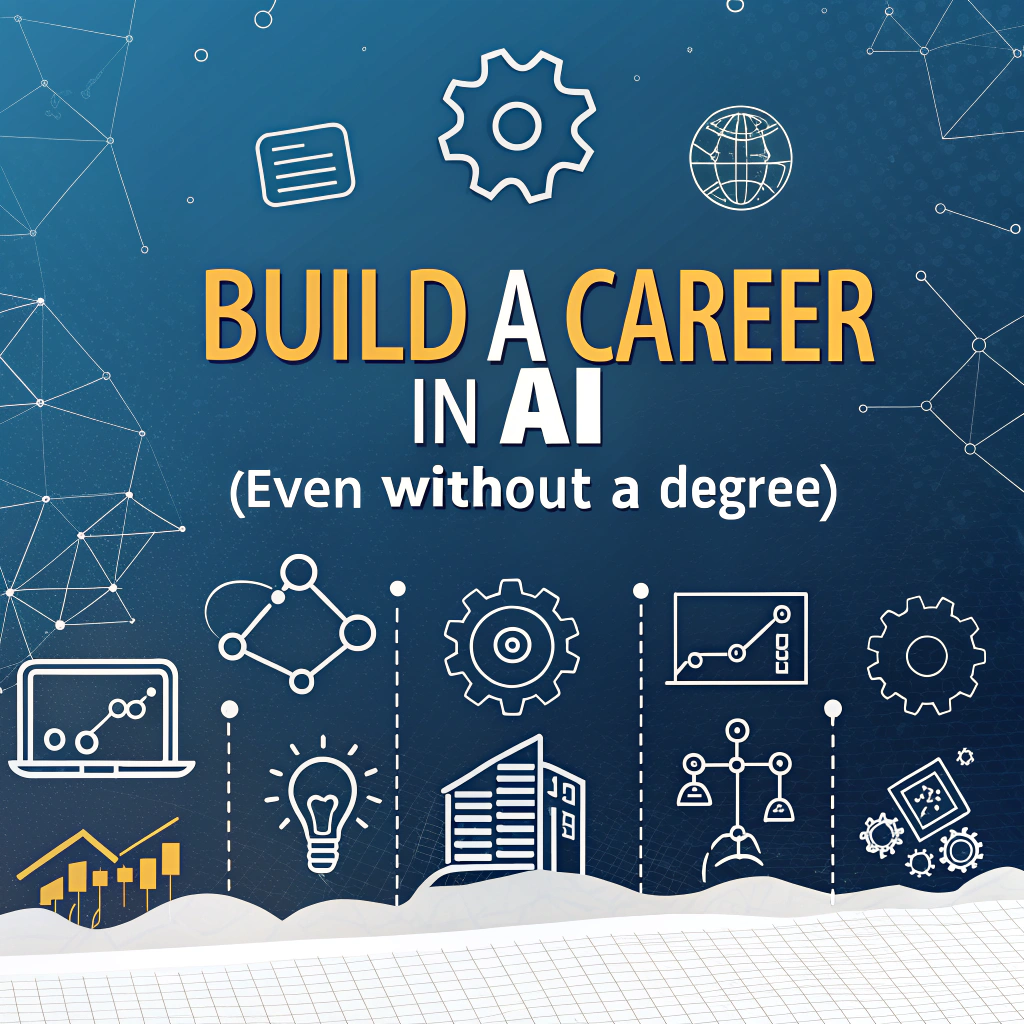
Why AI Careers Are the Future
By 2030, it’s estimated that AI will replace some jobs but create even more — in fields like software automation, AI testing, ethical AI design, and data-driven development. Reports show that AI and automation jobs will grow by over 30% year-over-year, offering some of the best AI jobs in 2026 for skilled professionals.
From AI-powered software development to AI in application design, companies are investing heavily in AI-based technologies — and they need trained talent to make it work.
Step 1: Learn the Foundations of AI
Even without a degree, you can start by learning the core concepts of artificial intelligence — including:
These are the building blocks of AI-powered software development. Many AI upskilling courses online (and offline) now provide structured, project-based learning paths to master these fundamentals.
Step 2: Master the Top AI Programming Languages
To become a strong AI professional, focus on AI programming languages that are shaping the future of automation and software development.
Here are the most in-demand languages for AI engineers and developers:
Python – The universal language for AI and machine learning.
R – Excellent for data analysis and statistical modeling.
JavaScript (with TensorFlow.js) – Ideal for AI integration in web apps.
C++ – Used in high-performance AI systems and robotics.
Java – Reliable and scalable for enterprise-level AI solutions.
If you want a head start, look for “best AI programming languages” or enroll in a course that teaches AI-based software development with hands-on projects.
Step 3: Learn AI Tools for Software Developers
Today, AI tools for software developers are more accessible than ever — you can start building, testing, and deploying AI applications using these platforms:
TensorFlow and PyTorch – for deep learning model training.
Hugging Face – for NLP and generative AI model deployment.
OpenAI API – for building ChatGPT-like assistants or AI chatbots.
Google Vertex AI – for cloud-based AI integration.
GitHub Copilot – for AI-assisted coding and debugging.
These tools are reshaping AI-powered software development workflows, enabling even beginners to create intelligent applications with ease.
Step 4: Take AI Upskilling & Certification Courses
Employers increasingly value AI certifications and project-based portfolios over degrees. Reputed institutes and online platforms now offer specialized AI upskilling courses that cover both theoretical knowledge and hands-on implementation.
Top-rated options include:
Generative AI Upskilling Courses (learn prompt engineering, image/video generation, and automation).
AI and Automation Career Programs (focus on AI project building and deployment).
AI Certification for Developers (bridge coding skills with AI integration).
These certifications not only boost your resume but also prepare you for AI jobs of the future — from AI software developer to machine learning engineer, AI systems analyst, or AI product manager.
Step 5: Build an AI Portfolio with Real Projects
The best way to prove your AI skills is by showing your work.
Start with small, real-world projects such as:
Developing a chatbot for customer support.
Creating an AI model to predict trends or recommend content.
Building a Generative AI app using OpenAI or Hugging Face models.
Automating testing or documentation using AI scripts.
A strong AI project portfolio helps you stand out in interviews and demonstrates your ability to apply AI to solve real problems — something degrees alone can’t prove.
Step 6: Stay Updated with AI Trends
AI evolves faster than any other tech field. To remain AI-proof and career-ready, follow the latest in:
AI automation and the future of work
AI replacing humans and new job creation trends
AI in software development innovations
Future of jobs with AI and automation
AI regulation, ethics, and security
Reading industry blogs, joining AI developer communities, and contributing to open-source AI projects will keep you ahead of the curve.
Step 7: Focus on Human Skills — They’re Irreplaceable
AI can automate logic, but human creativity, empathy, and problem-solving are irreplaceable. The safest AI-proof jobs and careers safe from AI will always require:
Emotional intelligence
Critical thinking
Team collaboration
Ethical judgment
Creative innovation
Developing both technical and soft skills ensures your career stays resilient in an era of rapid AI transformation.
You don’t need an Ivy League degree to become part of the AI revolution. What you need is commitment to continuous learning, a growth mindset, and the right AI upskilling roadmap.
AI is not just a career trend—it’s the new foundation of the digital economy.
If you learn how to use it, collaborate with it, and build with it, your future in the tech industry will be limitless.
Start small, learn consistently, and let AI amplify your potential — not replace it.
10. Conclusion: The Future Belongs to Those Who Adapt
The question “Will AI replace my job?” isn’t about fear — it’s about readiness.
Artificial Intelligence is changing how we work, not whether we work. In software engineering, development, and IT, AI is becoming a co-creator — improving productivity, reducing repetitive work, and empowering professionals to focus on innovation and strategy.
From coding assistants to autonomous testing tools, AI is transforming software careers — but it’s also creating new, high-demand roles that didn’t exist before. Developers, analysts, and engineers who understand AI-powered software development and AI tools for software developers will be the driving force behind the next generation of digital transformation.
If you’ve ever wondered:
Will AI replace programmers or developers?
Will AI replace humans in the workplace?
How can I future-proof my software career against automation?
The answer is simple — by learning to work with AI, not against it.
➔ Future-Proof Your Career with AI Upskilling
The fastest-growing career paths today are powered by AI knowledge and real-world project skills. Whether you’re a beginner or an experienced software professional, you can start now by:
Enrolling in AI upskilling courses or Generative AI certification programs.
Learning AI-based software development tools and frameworks.
Building hands-on projects using AI programming languages like Python, Java, or C++.
Creating a strong AI portfolio that showcases your ability to solve problems with intelligent technology.
At Cambridge Infotech, we help learners and professionals transform their careers through industry-relevant AI and automation training programs designed for the future of work. Our expert-led courses equip you with in-demand AI skills, practical experience, and placement assistance — making you ready for the most competitive AI jobs of the future.
AI will not replace humans — but humans who use AI will replace those who don’t.
The future belongs to adaptive, skilled, and AI-literate professionals.
Frequently Asked Questions (FAQs)
1. Will AI replace my job completely?
Not entirely. While AI can automate repetitive or data-heavy tasks, it can’t replace human creativity, judgment, or emotional intelligence. The future of work is collaboration between humans and AI, not replacement. Jobs will evolve — not vanish.
2. Which jobs will AI replace in the software industry?
AI is transforming roles in testing, bug detection, data analysis, and code generation. However, roles that involve system design, strategy, leadership, and innovation remain AI-proof. Developers who learn AI-powered software development tools will stay ahead.
3. What software jobs are safe from AI?
AI-safe jobs or AI-proof careers include:
Software architects
AI ethics specialists
Product managers
Cloud engineers
Cybersecurity experts
AI system integrators
These roles demand critical thinking, ethics, and design judgment — skills that AI cannot replicate.
4. How do I build a career in AI without a degree?
You can start by learning the fundamentals through AI upskilling courses, mastering AI programming languages (like Python, R, and Java), and creating hands-on AI projects. A strong project portfolio and certification matter more than a traditional degree today.
5. Are there any AI upskilling courses or certifications to future-proof my career?
Yes. Leading institutes like Cambridge Infotech offer AI upskilling and Generative AI certification courses. These programs teach real-world AI tools, automation workflows, and project-building skills — ensuring you stay AI-ready for the job market.
6. What is the future of AI in software jobs by 2030?
By 2030, AI will be integrated into every software role, from design to maintenance. Developers who can code, train, and collaborate with AI will lead innovation. Expect hybrid roles like AI system developer, prompt engineer, and AI integration specialist to become mainstream.
7. Will AI really replace human jobs in the software industry?
Will AI replace my job? AI is transforming how software professionals work — not eliminating their roles entirely. Automation is replacing tasks, not people.
For example:
Testing and debugging can be automated using AI tools.
Code suggestions from platforms like GitHub Copilot or ChatGPT make development faster.
However, human skills such as problem-solving, creativity, architecture design, and collaboration remain irreplaceable.
The future belongs to developers who know how to work with AI, not against it.
8. Will AI increase or decrease job opportunities in tech?
In the short term, AI may reduce repetitive roles, but overall it increases opportunity by demanding new skill sets.
Think of it like this:
10 years ago, there were no “Cloud Architects.”
Today, “AI System Engineer” and “Prompt Designer” are trending.
AI shifts demand from “routine execution” to “strategic innovation.”
Those who evolve with AI will have more job security and better pay.
9. What will the future of human-AI collaboration look like?
The next decade is about humans and AI co-working.
AI will handle analysis, optimization, and automation.
Humans will focus on creativity, emotion, and strategy.
For example, developers might design an app, while AI auto-generates code modules or predicts performance bottlenecks.
Those who embrace AI collaboration will be the most valuable professionals in the workforce.
10. What industries are most affected by AI transformation?
While every sector is changing, the biggest shifts are in:
IT & Software Development
Healthcare & Biotech
Finance & Fintech
Manufacturing & Robotics
Marketing & Advertising
All of these industries need AI professionals who understand automation, data analytics, and ethics — making AI one of the fastest-growing career paths in 2025–2030.
Start building your future today.
Learn. Upskill. Lead — with AI.
Join Cambridge Infotech’s AI Career Programs and become part of the next generation of innovators shaping the intelligent world of tomorrow.

